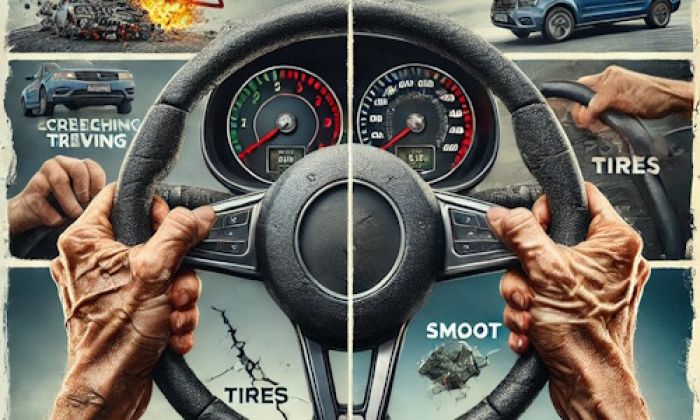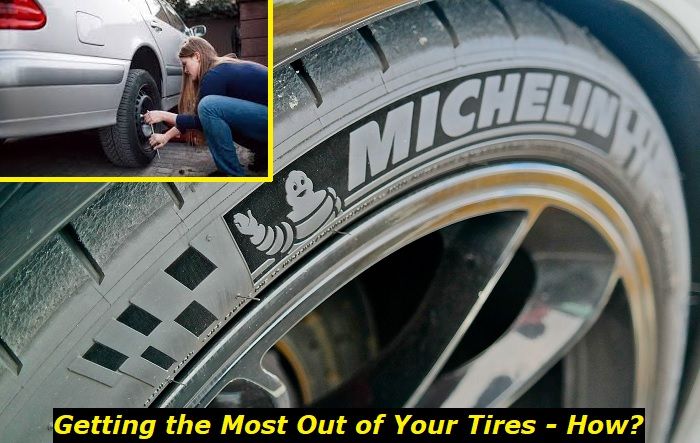Spotting a puddle of coolant under your car? A radiator leak may be at fault! It is essential to take immediate action, as an unchecked radiator leak can cause extreme harm to your engine. Don't delay - act now and avoid long-term damage from occurring. In this article, we will explore the reasons why your radiator may be leaking from the bottom right corner and discuss some of the ways you can fix it.
Coolant leaks highlights
- Level of urgency:very high
- Commonreasons:cooling equipment failure, pipe connections, radiator damage
- DIY diagnostics:possible but complicated
- DIY repair:mostly impossible
- Price of repair:$350 - $1,500
- Time for repair:3 - 8 hours
- If ignored:overheating, equipment failure
.jpg)
Understanding Radiator Basics - What are radiators, and why do they leak?
Your car's radiator is a key component of its cooling system, tasked with the crucial job of preventing engine overheating. This vital piece works by transferring away heat from your vehicle's motor through a series of tubes and fins. A typical blend of water and antifreeze is required to fill up the radiator; this mix helps to protect against inside erosion.
While radiators tend to be quite resilient, corrosion, rusting, or a cracked hose may cause them to leak over time. Unfortunately, this can spell big trouble for your car's engine and potentially leave you stuck on the side of the highway if not properly addressed. To avoid these dangers, have any signs of a radiator leak checked out by an experienced mechanic right away - it could just save you from disaster!
What Are the Most Common Causes of Radiator Leaking from Bottom Right Corner?
If you notice a radiator leak coming from the bottom right corner of your car, it could be due to several causes. The most prevalent reason is either defective or worn-out radiator hoses and gaskets that are supposed to keep fluid in your cooling system securely sealed inside the radiator. Other possible culprits may include clogged passageways, rusting components, engine overheating issues, or even an accidental puncture.
How to Identify and Fix the Cause?
To identify and address the source of your radiator leakage, begin by inspecting if it is coming from a worn gasket or hose. If the issue is caused by a hose, there are several things you can do to fix it. It may be as simple as tightening the hose clamp holding the hose to the radiator or replacing the hose if it has become worn or damaged.
If you notice that the leak appears to be stemming from the bottom right corner of your radiator, this could indicate an issue with its gasket seal - especially when there are no other visible damages to it. Make sure to replace the existing one with a new one in order for further leakage prevention!
If you discover corrosion in the bottom right corner of your radiator, it could be causing a leak. Corrosion is caused by accumulated moisture which can corrode metal components, including head gaskets and seals. To avert any further damage from occurring, inspect all coolant hoses for wear or harm and replace them if necessary. You may also need to flush out contaminated coolant and top it off with new antifreeze before driving again for optimal performance.
If you notice that your radiator and hoses do not display any visible damage, it could be a sign that the engine has been running too hot. This can create pressure inside the cooling system, which may result in leakage from many of its components, such as the bottom right corner of your radiator.
To recognize and address this issue, it is important to examine all of the engine sensors, such as temperature gauges and intake air temperatures, for any irregularities - if these demonstrate that your motor is running hotter than usual, then you will need to act quickly in order to lower its heat level (for example, replacing an air filter).
What Causes Radiator Hoses To Leak?
Extreme temperature fluctuations, engine vibration, age, and physical contact with other automobile components, such as the exhaust system, can cause rubber radiator hoses to wear down over time. If left unresolved, these issues may even lead to a leak of coolant onto the ground below.
Furthermore, hazardous chemicals like brake fluids, antifreeze, or oil could cause the rubber on your radiator hose to deteriorate, which may result in leakage. To guarantee it continues working effectively and keeps your vehicle's cooling system intact and secure, replace any hoses that have been worn out or damaged.
What Are Some of The Best Radiator Hoses?
Opting for the best car radiator hoses requires careful consideration of many aspects. Firstly, make sure that the hose material is suitable for your vehicle's coolant variety. Rubber, silicone, or a mix of both are generally suggested as viable options.
Secondly, it is essential to buy one which works harmoniously with your cooling system and will not lead to any leakages or obstructions. Furthermore, a reliable hose should have an adequate wall thickness between 3mm and 5mm to resist wear and tear. Additionally, durable clamps are essential for longevity. To guarantee perfect fitment, select a hose designed specifically for your car model.
What Will Happen If You Don't Fix The Leak?
If you neglect to take measures against radiator leakages, the consequences can quickly become more serious. As coolant continues to escape from the system, your engine will eventually overheat and seize up - leaving you stranded with an even bigger repair bill than what it would have been if taken care of beforehand.
Also, extended exposure to leaking coolant could result in further corrosion and deterioration for your radiator - thus, it is important that any signs of leakage are attended immediately! In conclusion, identifying and fixing any type of radiator leak should be one of your top priorities when it comes to maintaining your vehicle.
Is It Safe to Drive with Leaking Radiator?
Absolutely not! Driving with a leaking radiator can result in serious, potentially irreparable damage to your car's engine. So if you spot any signs of leakage from the cooling system or radiator, it is best to have a professional examine the issue immediately. Making sure that all components are working properly will keep both you and your car safe on the roads while also helping you avoid having to pay for costly repairs down the line.
How To Prevent Radiator Leaks?
In order to avoid any radiator leakage, it is essential that you regularly inspect the hoses and connections attached to them. Ensure that all clamps are fully secured with no signs of damage or wear and tear. Also, flush out your cooling system every now and then so as not to let debris build-up, which may cause blockages in the future.
Lastly, routinely check your antifreeze levels in order to prevent overheating issues or even a puncture due to extreme pressure. By taking precautions against radiator leaks and ensuring that all components of your cooling system are functioning properly, you can help keep your car on the road for longer.
How Much Does It Cost To Repair A Radiator Leak?
When dealing with a radiator leak, the cost of repair depends on how severe it is and the type of car. Small holes can be filled in with an economical solution called "Bars Leak," which you can purchase at many automotive parts stores for around fifty dollars. If you go to a mechanic, they might bill between one hundred and five-hundred fifty dollars for repairs.
Bottom Line
If neglected, a leaking radiator can cause severe engine damage to your car. That's why inspecting all radiator hoses and gaskets is so essential. Be on the lookout for any signs of wear or corrosion, as this could be an indication of a problematic leak coming from the bottom right corner of your radiator. Don't take chances - have it examined by a trusted mechanic immediately; this may save you thousands!
About the authors
The CarAraC research team is composed of seasoned auto mechanics and automotive industry professionals, including individuals with advanced degrees and certifications in their field. Our team members boast prestigious credentials, reflecting their extensive knowledge and skills. These qualifications include: IMI: Institute of the Motor Industry, ASE-Certified Master Automobile Technicians; Coventry University, Graduate of MA in Automotive Journalism; Politecnico di Torino, Italy, MS Automotive Engineering; Ss. Cyril and Methodius University in Skopje, Mechanical University in Skopje; TOC Automotive College; DHA Suffa University, Department of Mechanical Engineering






Add comment